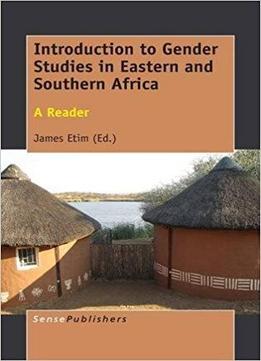
Introduction To Gender Studies In Eastern And Southern Africa
by James Etim /
2016 / English / PDF
29.8 MB Download
Africa has witnessed massive changes in the last fifty years - from independence through structural adjustment, rule by military juntas in several countries and to a period now where the focus is on how best to prioritize their needs based on resources, national goals and human potential. There is general agreement that human capital is important in economic growth and development. There is always the need to ensure that resources and human capital are used appropriately to advance development. Gender disparities, whether in treatment, access to resources, resource utilization and the law, may in themselves retard or slow down development. Resources and human potential in all societies include how best to ensure there is no gender disparity and to fully tap the resources inherent in women for personal, social and national development. Beginning with the women's suffrage movement, there has been the push to encourage gender equality worldwide. The Fourth World Conference on Women in Beijing in 1995 embodies the commitment of the international community to implement policies that will enhance the political, social, economic, educational empowerment of women. This book highlights the issues affecting women in Eastern and Southern Africa - what role does custom and patriarchy play in gender disparities in education, access to health, problems in the workplace and family relationships? How have women writers in the last twenty years presented the issues of patriarchy, women's rights, globalism and women's holistic development? What are recent developments that have helped improve the situation for some women? These are some of the issues that are covered in this book. The thesis of this book is that there have been policies and strategies developed that have worked to empower women. However, vestiges of sexism, gender disparities in several fields still remain and traditions/customs and patriarchy have aided in still keeping women down.











